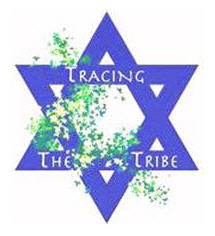It asks why Israeli Prime Minister Ehud Olmert's second hometown is Harbin, a northern China city, and why in 2004 he visited the graves of his grandfather and other relatives in its cemetery, located in the capital of Heilongjiang Province.
Why was his grandfather buried in China?
Puzzled by the fascinating question, Beijing Review reporters recently went to Harbin to track down Jewish history in the city.
In Harbin Huangshan Cemetery, there is a specially separated cemetery,
which is dedicated to Jewish people who had lived in the city in the early 20th
century. The inscription on the tombs was in either Hebrew or Russia. Cemetery
guards said it was now the biggest and best preserved Jewish cemetery in East
Asia, covering a space of 836 square meters.
Over 600 Jewish people are buried there. Most of them were Jews of
Russian nationality who came to Harbin in the early 20th century from Russia. A
large proportion of Jews who had lived in Harbin went to Israel in or after 1948
when the country was founded. But some stayed in China, and spent the rest of
their lives in Harbin.
In 1901, the railroad connected China's northern provinces with Russia and many Russian Jews went to Harbin.
Jewish expert Qu Wei, Heilongjiang Academy of Social Sciences president, said that Russian anti-Jewish sentiments forced many Jews to leave for other places. Harbin, he said, was once the biggest destination for Jews arriving in the Far East, peaking at about 25,000 inhabitants .
While in the city, the Jews played an important role in political, economic and cultural lives, and exerted a far-reaching influence in the city's development.
Qu said Harbin was internationally recognized as a "City of Music" in the first half of the 20th century, and attributed this to Jewish musicians. From the 1920s, many Jewish musicians gathered in Harbin, either performing or teaching, promoting musical appreciation among the people.
The Jewish residents also contributed to the city's architecture. Central Avenue - the center of Harbin City - is filled with "extravagant European-style" construction. The Modern Hotel was the most extravagant hotel in the Far East in the early 20th century, and also the first foreign hotel in Harbin established by a Jewish entrepreneur. Every night, singers and musicians performed until midnight.
According to the story, the city government paid attention to Chinese and Jewish connections. The experience brought the two peoples closer together. In recent years, to remember Jewish history, the city has revamped the cemetery, and the Jewish synagogue, school and hospital. The synagogue is now a museum displaying Jewish life and culture.





































Interesting, valuable.
ReplyDelete